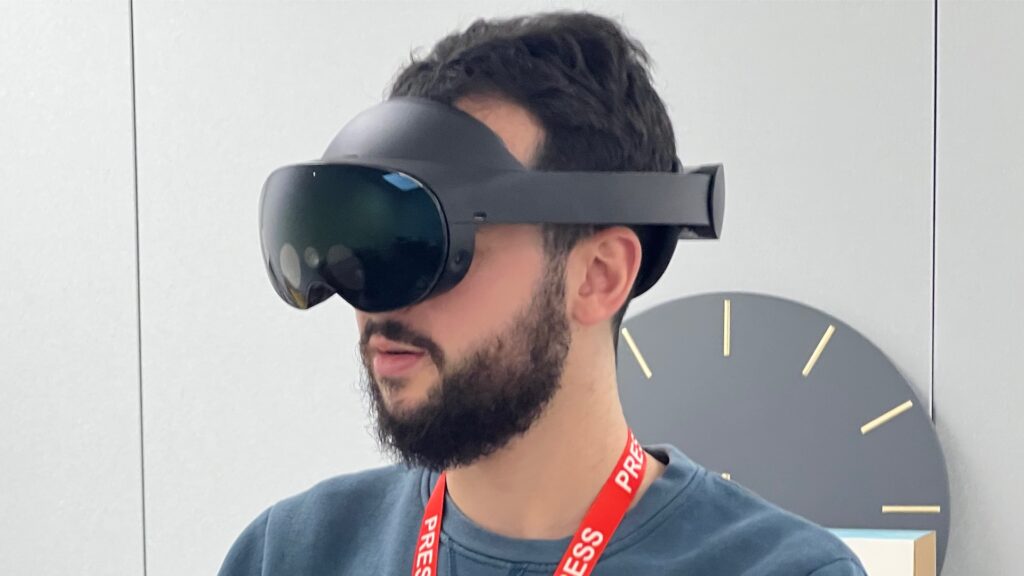A 115-page document commissioned by the French government questions the relevance of investing in “the metaverse”. Reading it confirms that the vision of Mark Zuckerberg, the boss of Meta (Facebook), is far from unanimous.
At the request of the Ministry of the Economy and the secretariat in charge of the Digital Transition, a mission on the potential of the metaverse was launched in France in February 2022. Its results, published Monday, October 24 in the form of a report 115 pages, can be consulted on the website of the Ministry of the Economy. Some sum it up as “a recommendation for investment in the metaverse”, but this is not what Numerama understood by reading it in its entirety. The researchers’ conclusions are the perfect illustration of the lack of consensus on the subject.
The Metaverse does not exist
At the beginning of 2022, Numerama was also interested in the concept of the “metaverse”. Using an Oculus Quest 2 headset, we were able to try different experiences that could be similar to the metaverse. The main lesson of these essays was that the metaverse potentially exists in different forms, so much so that it is probably more accurate to speak of metaverse in the plural. That is precisely what this report says.
Ironically, the first 40 pages of the report are devoted to attempting to come up with a definition of metaverse. The researchers explain that Meta, the parent company of Facebook, with its large communication operation, has monopolized a name that it does not yet have. France therefore wishes to distinguish Facebook’s idea of a virtual world from the term “metaverse”, which in reality encompasses all technologies related to 3D immersion, such as video games. There are metaverses, not just one. The hypothesis of an interoperable world pushed by Silicon Valley exists, but it is anything but guaranteed. The metaverse can exist in a helmet, through a screen, in virtual, mixed or augmented reality, with or without blockchain… One thing is certain: this term means everything and nothing.
The question researchers are asking is not whether France should create its own metaverse, but whether it should invest in technologies to position itself on the future immersive transition. Instead of talking about virtual town halls, we wonder more here whether to compete with Unreal and Unity with a European 3D engine. We are therefore not talking about a virtual world, but about video games or cinema, which are based on these technologies. The title of the report is thus misleading: the term metaverse is a catch-all that keeps creating confusion. Another example put forward is that of a “Metaversic Mona Lisa”. The idea would be to model French heritage in 3D to make it available for consultation in 3D, regardless of the medium chosen (helmet, smartphone, etc.).
“Today, when we talk about the Metaverse, we are in fact often referring to a marketing concept encompassing several immersive technologies such as augmented reality and virtual reality”
On page 35, the researchers issue an “attempt to define” the metaverse. There she is : “A metaverse is an online service providing access to real-time, shared and persistent 3D space simulations, in which we can live immersive experiences together”. They insist on the fact that the helmet is not obligatory and that all this can exist in a different framework of a social network, breaking definitively with the vision of Facebook.
The report is skeptical of certain uses, such as 3D video calls, which some respondents present as revolutionary. “In the case of metaverses, one can legitimately ask what is the significant and lasting gain of real-time 3D spaces, head-mounted displays and blockchains for each human activity concerned”. On the other hand, for video games, the use of 3D is not disputed. It must be said that this has been the norm for several years.

What are the recommendations on the metaverse?
Even if the researchers seem very well documented on the subject, their report is not always easy to follow. The mix between social network, virtual reality and video games is confusing, since we finally talk about the metaverse as a whole, while sometimes talking about the concept it represents. It’s hard to blame them, it’s just yet another proof of what they say elsewhere: the future of the metaverse is unclear.
Contrary to what has been said, their recommendation to the government is not to invest in the metaverse, like companies like Carrefour They present this new technological fashion as “a cultural opportunity” for France, which already shines in areas related to this famous “metaverse”. If the future of the Internet is in 3D, then France must position itself now so as not to depend on foreign technologies, when it already has giants in these sectors (Ubisoft for example).
Among the recommendations put forward, that of an experiment at the 2024 Olympic Games. Under the supervision of the National Institute for Research in Computer Science and Automation (Inria), the researchers recommend capturing a lot of things in 3D in order to see what that we can do next.
Sensors on athletes could make it possible to see sport differently, hoping to avoid an overly marketing operation if the latter were to see the light of day. Lynx, the French start-up behind a mixed reality headset, is also cited as one of the players to highlight to enhance the French ecosystem. The central idea is to continue to invest in existing technologies, and not to see the metaverse as something new that is about to appear.
